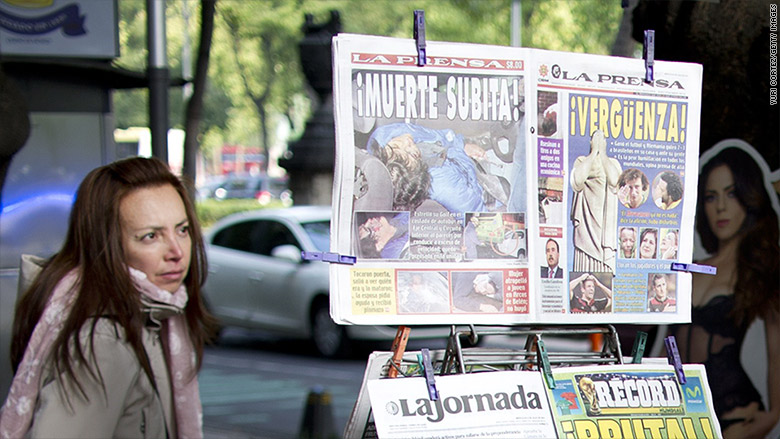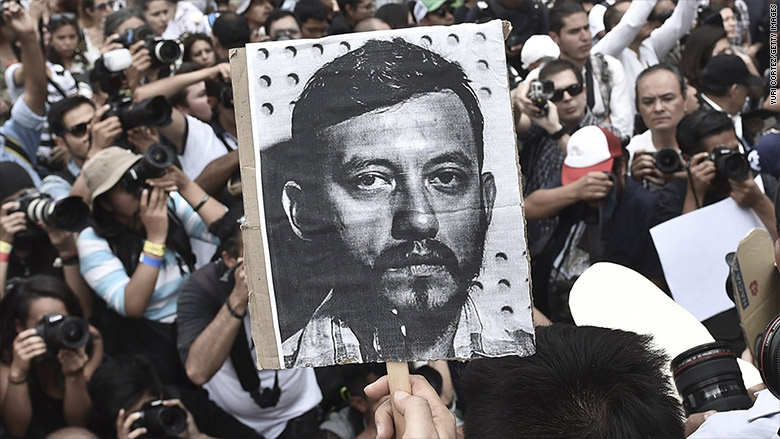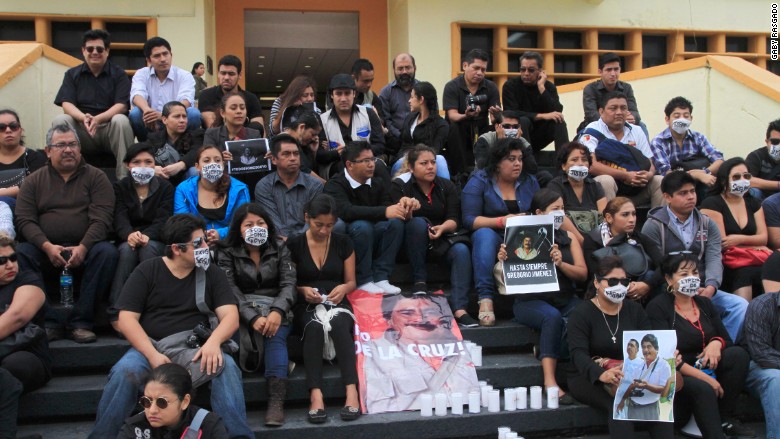
Even for Mexicans desensitized by violence, the murder of journalist Rubén Espinoza this summer -- shot in the head in Mexico City -- was a shock.
Mexican journalists weren't shocked, however. They were terrified.
Many are now considering seeking political asylum in the United States.
It wasn't the relatively mundane method -- by Mexican standards -- that the "sicarios" used to exact death that sent shock waves.
What was so jarring about Espinoza's killing in July was the fact that it happened in Mexico City, which has been long considered to be a safe haven for reporters in danger.
As violence against journalists in Mexico has escalated this decade, it seems that reporters have almost no safe haven.
"When they murdered Espinoza, who relocated from Veracruz and specifically fled to Mexico City to hide, it changed things for journalists in Mexico," said Carlos Spector, an El Paso, Texas, based attorney who has handled five cases of Mexican journalists seeking political asylum in the United States.

Spector said that since Espinoza's murder his office has been fielding more asylum requests and inquiries than ever.
However, Spector says that the overwhelming majority of asylum requests from Mexicans are denied by the United States.
The main reason U.S. judges deny asylum is if they feel it's "reasonably safe" to relocate applicants to another part of Mexico.
"'Reasonable' doesn't mean 'guaranteed safety,' however. It's a tough bar to meet," Spector said.
According to the Committee to Protect Journalists, eight Mexican journalists have gone into exile since 2010.
For safety and confidentiality reasons it's nearly impossible to know how many Mexican journalists are currently seeking political asylum in the United States, CPJ and Spector said.
Related: A young journalist's beat: Survival
"Our annual exile report only counts cases supported by CPJ," says Carlos Lauria, program director for the Americas. "Many of these cases of journos who've gotten asylum are very complicated. They want to be under the radar and they don't want publicity. Often times they don't come to us."
Lauria said that one thing is undeniable: In the last decade, journalists from Mexico seeking political asylum in the U.S. are no longer a rarity.
"Before, journalists requesting asylum in the Americas were from Colombia or Haiti," said Lauria. "It wasn't journos from Mexico."
Now, Mexico is one of the most dangerous places in the world to report from. "In the last seven or eight years there have been more than 50 cases of journalists killed or disappeared in Mexico," said Lauria.

Most often, reporters targeted with violence work in the small towns far from Mexico City.
"The mortal sin that journalists commit is to draw the connection between the government and organized crime," he said. "Journalists can go after the state hard without many repercussions. They can also go after the cartels hard without too many repercussions. It's when journalists link the two that they get into trouble."
"This corruption and collusion at all levels of the Mexican government only aggravates the situation," Lauria said. Ninety percent of the crimes against the press go unsolved, he said. "That's really discouraging. It creates a lot of skepticism about the criminal justice system's ability to provide redress."
Related: When journalists are targeted in the U.S.: The extraordinary response at WDBJ
The problem is more severe than violence against journalists, said Lauria.
The core of democracy is being damaged in Mexico.
Areas of the country are an information void. "It's creating widespread self censorship and censorship because journalists are terrified," he said.
"The price that Mexican journalists have paid is huge and it has really endangered them," Lauria said.
"Until the cycle of impunity is broken this is going to continue to be a problem and journalists are going to want to leave the country."


